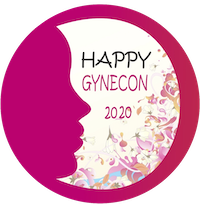Speaker
Description
BACKGROUND: Meconium Peritonitis is defined as an aseptic localised or generalised chemical peritonitis which results from perforation of the gut in utero with reported incidence of 1 in 35,000 live births. Although, no definitive reason is found in half of the cases, possible causes include bowel perforation as a result of obstruction such as intestinal atresia, meconium plugs, volvulus, internal hernia, mesenteric ischemia, Hirschsprung’s disease, torsion of a fallopian tube cyst, and cystic fibrosis. Secondary inflammatory response results in production of fluid(ascites), fibrosis, calcification, and sometimes cyst formation. It can be classified into 3 types as follows: generalised, cystic, and fibro adhesive types. Successful outcome with conservative management has been seen in limited number of cases, however, surgery is imperative when signs and symptoms of intestinal obstruction are present. With the evolution of neonatal care, the prognosis of meconium peritonitis has improved much. Favourable results have been seen when the condition was detected in utero rather than a neonatal diagnosis.
CASE DESCRIPTION: A 32year multigravida, married non consanguineously, was referred to our hospital at 33 weeks 2days of gestation in view of isolated foetal ascites, diagnosed in antenatal scan at 32 weeks. Antenatal workup for immune and nonimmune hydrops was found to be negative. Foetal echo was done, which showed structurally normal heart with mild pericardial effusion and echogenic foci in both ventricles. Repeat ultrasound was done which showed moderate foetal ascites with few areas of calcification in the bowel loops and prominent IVC, there was also associated polyhydramnios. The probable diagnosis of meconium peritonitis was made. Neonatologist opinion was taken regarding foetal prognosis and further management. Subsequently spontaneous labour has set in and a preterm female hydropic baby was delivered at 35 weeks of gestation. The baby needed intubation and ventilator support. Postnatal X-ray revealed intrabdominal calcification, ultrasound showed gross thick particulated ascites with giant cyst compressing the Inferior Venacava and minimal bilateral pleural effusion. Emergency laparotomy revealed meconium pellets and perforation of ileum, Double barrel ileostomy was performed, following which oedema resolved and activity improved. Baby was doing well on a 10days follow up post-delivery.
CONCLUSION: In conclusion, current survival rate in babies with meconium peritonitis is up to 90-100% in some centres with the improvements in the surgical techniques and postnatal care of the neonates. Even the exact mechanism of meconium peritonitis is still unknown, with the advances in antenatal treatment modalities, early diagnosis of the patients is more frequent.

